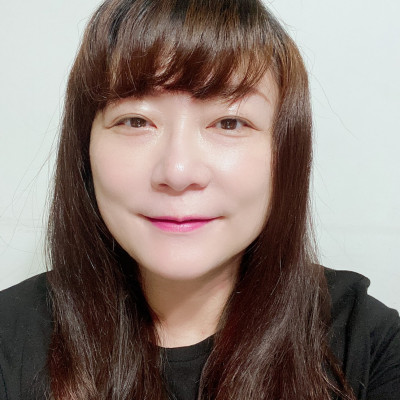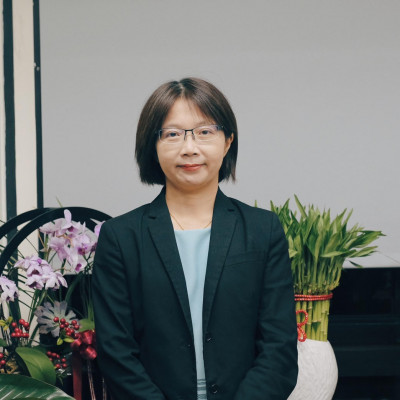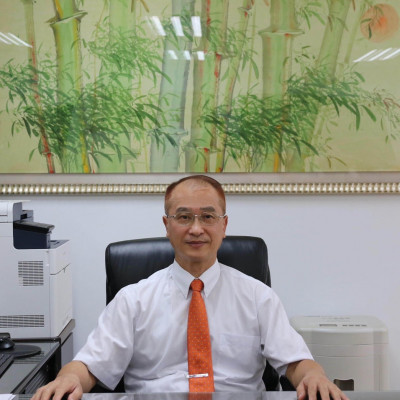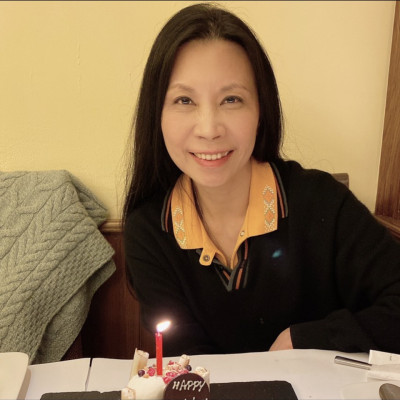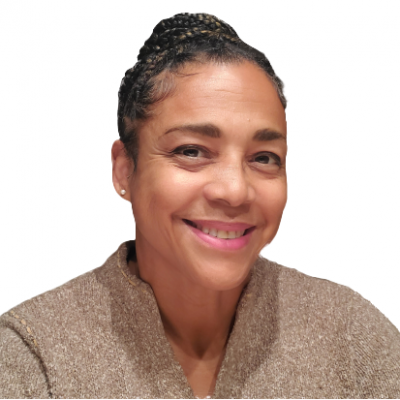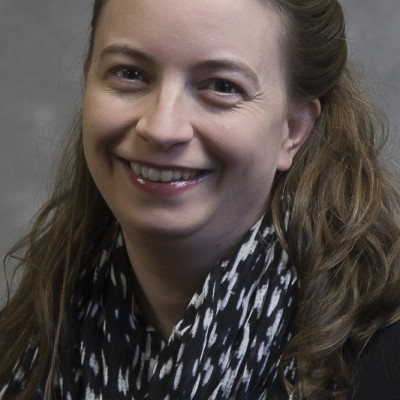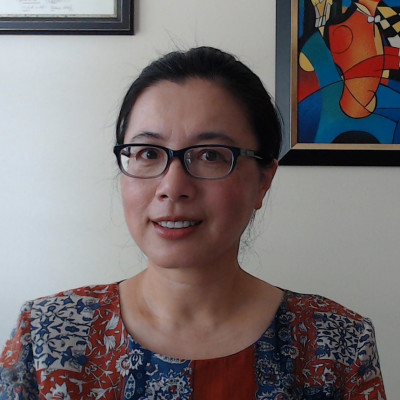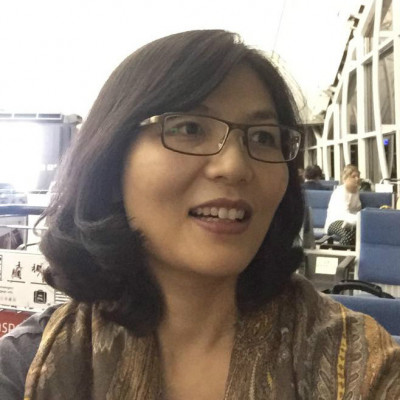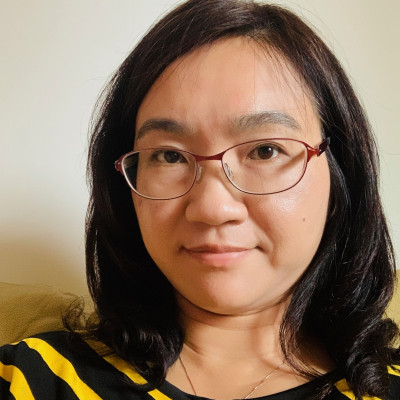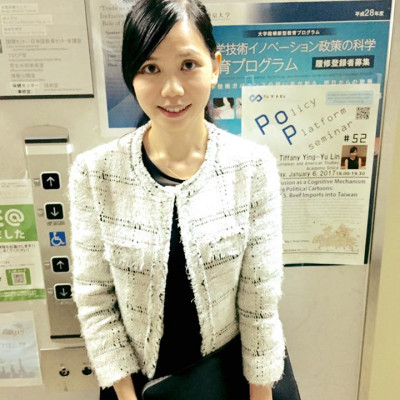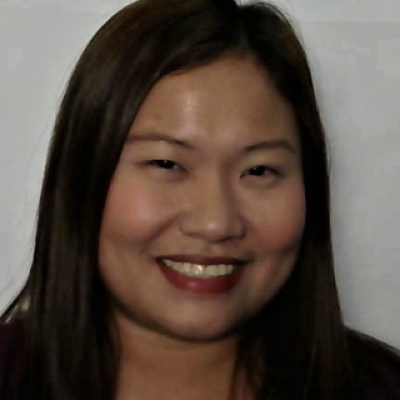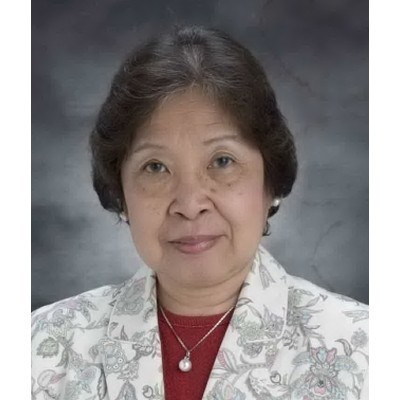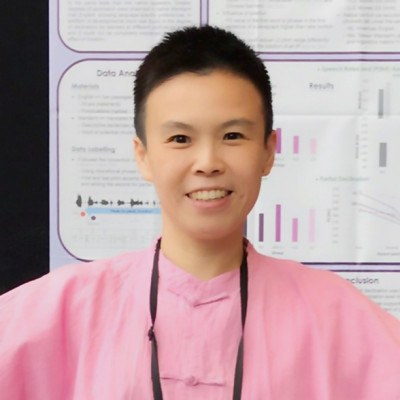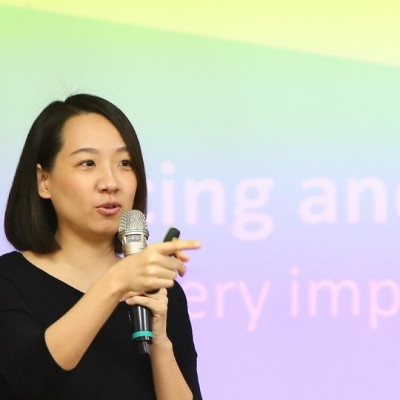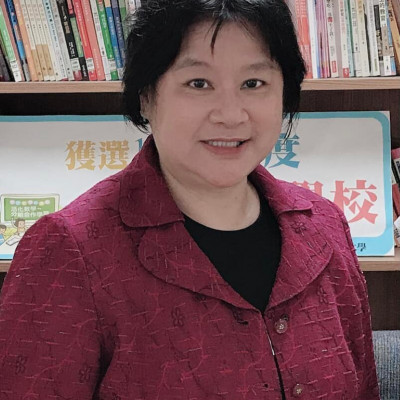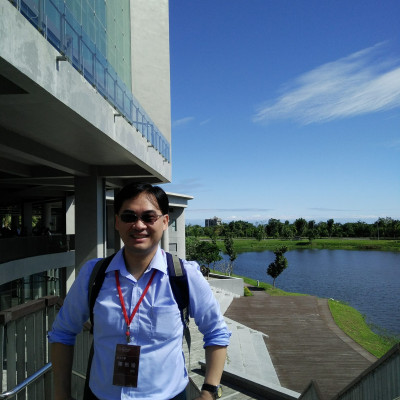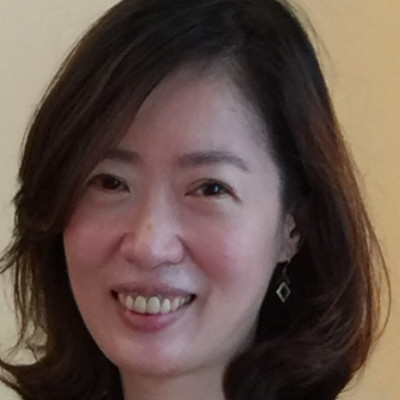Sessions / Location Name: Room A (Webex)
Virtual Location
Virtual: You cannot enter virtually via this page. Click on the titles of individual presentations or go to the Live Page
Pre-Conference Q&A Session #2602
Open to Presenters, Attendees, and Hosts. If you have any questions about the conference this weekend please drop in for a chat.
Opening Ceremony #2556
Welcome to ICBE 2021! Let's kick off this event together, please join us for our opening ceremony on Saturday! Dr. Hsiao-Hsia Wu, Director General of the Department of Teacher and Art Education, Ministry of Education (Taiwan), Dr. Ching-Ho Chen, President of National Taipei University of Education (Taiwan), and Dr. Chin-Fen Chen, Director of the Office of Teacher Education and Career Services, National Taipei University of Education (Taiwan) will be giving the opening remarks.
The Trifecta: ELs, The Leaky STEM Pipeline & Culturally Responsive Teaching #2478
One definition of ELs stated the following, “ELs are identified as students who demonstrate a sufficient difficulty in reading, writing, speaking, or understanding the English language: a challenge that “inhibits their ability to learn successfully in classrooms where English is the language of instruction or to participate fully in the larger US society”. Not being able to speak, read or write in English does create challenges on the part of the ill-equipped educator, but with the correct professional learning for teachers, ELs can be seen as valuable participants and contributors in the classroom, regardless of the content area. It is statements like these that continuously feed the belief and practice of keeping culturally linguistic students out of rigorous classes. Research has proven that when ELs are allowed to interact in varied ways to build from what they already know and to develop new technical knowledge at school, ELs can be successful in STEM content and practices while simultaneously building their proficiency in English beyond STEM.
This talk will define and discuss ELs and The Leaky STEM Pipeline's impact on students whose first language is not English and culturally responsive teaching. Dr. de Haan will also include strategies that can be used in any classroom and their connection to TESOL’s 6 Principles for Exemplary Teaching of English Learners and the connection to the Brain.
Dr. Darlyne de Haan, founder of de Haan Consulting, LLC, the non-profit, Mad About Science, Inc. and presently the Director of Curriculum and Instruction of Math, Science and STEM for a large linguistically and culturally diverse school population, is a former forensic scientist and chemist with more than 20 years of experience in STEM. She is a recipient and participant of the coveted Fulbright Administrator Program for Fulbright Leaders for Global Schools, a program sponsored by the U.S. Department of State's Bureau of Educational and Cultural Affairs. She is a strong advocate for changing the face of STEM to reflect the population.
EMI and Bilingual Education: Principles, Prospects, and Challenges #2528
Addressing EMI Teaching Challenges with Creative and Flexible Pedagogy Dr. Adrienne Johnson
Abstract This session will focus on innovative approaches to teaching content (science, math, art, health, etc.) using English as a Medium of Instruction (EMI). Often, teaching in a student’s native language can seem completely different from English as a Medium of Instruction and, therefore, EMI can be very intimidating! However, teachers can apply many of the same effective teaching skills in a typical, native language classroom and in an EMI classroom. This session will first help participants to identify similarities between teaching in students’ native languages, and teaching in English. Then, the session will help to identify the unique challenges associated with EMI teaching. Finally, the session will provide examples of flexible and creative teaching strategies that will assist in designing and delivering an effective EMI lesson.
The Art of Straddling in Taiwan’s EMI/CLIL Classroom: A Progress Report Dr. Carolyn Ho
Under Taiwan’s Bilingual Nation 2030 initiative, education of all levels has seen challenges and aspirations on the way towards the EMI/CLIL teaching model. Teacher training becomes critical as teachers play a pivotal role in successful transition from the monolingual context to the bilingual environment. University training programs are tasked with providing support to ease classroom teachers into the new approaches and additional language demand. It is in this context that the presenter will report on the progress of a needs assessment project on teacher training. The virtual project involves observing ten recorded lessons and conducting online post-observation conferences with the ten teachers, who are of various STEAM subjects and different grade levels, ranging from 6 to 11. The project has found that the teachers, be they of English or STEAM, are struggling to straddle both content and language in the classroom. They appear to wrestle with the idea of having to break down silos and incorporate added learning aims. While teachers have relatively clear understanding of the EMI/CLIL approaches on the conceptual level, it is observed that making an EMI/CLIL lesson an organic whole requires sustainable training effort in the implementation stage. The project is ongoing at the time of the conference; therefore, the presentation will summarize the progress thus far, including teachers’ various approaches to incorporate EMI/CLIL in the classroom and preliminary findings of the needs assessment. Audience will be informed of emerging training needs and thoughts on the design of a teacher training curriculum for the Taiwan context.
EMI and Bilingual Education: Prospects, Challenges, and Practice Lori Robbins
This session will cover different bilingual teaching models and support in the United States. She will also discuss best teaching practices to reach English language learners of all levels. This session will give you a better understanding of the American bilingual education system, and you will leave with tools and strategies that you can implement in your classroom! Lori Robbins started her journey in education in 2010 as a high school Spanish teacher. She has also taught English as a Second Language for four years. Currently, she is an Instructional Coach and provides professional learning experiences to the teachers in her school. She specializes in creating an engaging classroom and incorporating technology in lessons. Bilingual education and multilingual students are huge passions of Mrs. Robbins, and she is excited to share what she has learned with you!
Principles for Exemplary Teaching of Bilingual Learners #2560
Dr. Yueh-Nu Hung's Talk is on the Six Principles for Exemplary Teaching of Bilingual Learners: Focusing on Supporting Language Learning. In 2021, eight Bilingual Education Research Centers of Taiwan put their brains together and drafted a list of six principles for exemplary teaching of bilingual learners. The ultimate goal is to compile a resource book for bilingual education teacher trainers. The six principles will be briefly introduced first, and then I focus on Principle 1 (Know your learners: Provide comprehensible input) and Principle 3 (Foster students’ social and academic language) and highlight some of the key issues related to language learning objectives planning and teachers’ target language competence and pedagogical knowledge. Dr. Joyce Chou's talk is on "Instructed Second Language Acquisition Perspectives" As instructed second language acquisition (ISLA) indicates, the goals and effects of instruction can be accordingly characterized as follows: instruction may enable learners to internalize new L2 knowledge so that they become more elaborate L2 users (with a richer vocabulary and more complex grammar); instruction may enable learners to modify or restructure their L2 knowledge and performance so that they become more accurate; instruction may enable learners to consolidate their L2 knowledge so that they can use the L2 with greater ease and for a wider range of tasks and functions so that they become more fluent language users. This research will look into how teachers can scaffold bilingual young learners’ L2 development. Dr. Yun-Li Hsu's talk will be on "Lesson Plan Design Principles and Key Points of Bilingual Teaching in Life Curriculum" Having served as a review committee member for the results of the bilingual teaching plan and application plan, and as a supervising professor in several schools in some areas of primary and secondary schools for nearly one year, I will be sharing some guiding principles of Life Curriculum Design. In the process of reviewing and preparing lessons with each school, I found that most of the teachers in schools that implement bilingual teaching in the Life Curriculum have a background in English. Many teachers are less familiar with Life Curriculum. Therefore, they are prone to encounter difficulties when designing teaching plans. To help teachers better understand the life curriculum, I will briefly introduce the important concepts and principles of the Life Curriculum, through the "Life Curriculum" literacy-oriented teaching model map, which includes description 1) Life Curriculum view of children's learning; 2) The characteristics of students at this learning stage; 3) Basic concept of Life Curriculum, and 4) Key points when designing teaching plans. The basic principles of the English integration Life Curriculum course will be explained, providing educators resources and suggestions for bilingual teaching of Life Curriculum.
Conference Lounge #2609
A space for continuing conversations from presentations or just socializing.
Pluriliteracies Teaching for Deeper Learning in multilingual classrooms: the latest craze, critical responsiveness or responsible activism? #2496
In this session I shall explore the implications for change and development in pedagogic thinking which are urgently needed in our multilingual classrooms to enable our young people to be equipped with the knowledges and skills to be active, contented global citizens in the ‘here and now’ and the near future. This calls on subject teachers and language teachers alike. The ‘literacies turn’ has invited educators and researchers to reconceptualise language (s) learning and language (s) using which bring into question an over emphasis on linguistic fluency. As increasing attention focussing on the role of textual fluency across and within languages gains momentum, so too does an understanding of the underlying principles and practices needed to construct dynamic learnscapes or classroom ecologies for deeper learning. These not only promote integrated learning (CLIL) but identify ways of deepening conceptual development, critical engagement, resilience and agency within and across subject disciplines, languages and intercultural practices. In our rapidly changing landscape, disruptive thinking provides us with a rich canvass on which to draw our futures thinking pedagogic design and practices. The pluriliteracies movement is not going away…….
Saturday Night Live with Do Coyle #2605
Join Dr. Do Coyle in celebrating her new book, Beyond CLIL! This is a great chance to socialize and network with bilingual educators around the world!
Greetings #2604
Dr. Tiffany Lin will give a brief introduction to the second day of the conference.
Language Education Policies and Practices in Japan, Philippines and Brazil #2557
The ALT system in Japanese English language education and the evolvement of CLIL in Japan by Dr. Anthony Ryan. This talk firstly outlines the Assistant Language Teacher (ALT) system that is in place in the public school system in Japan. It briefly traces the roots of the system, describes the recruitment and orientation process, the role of the ALT in the EFL classroom and offers insights into the current working and living conditions of the ALTs interviewed by the presenter. Secondly, it then briefly describes the Japan CLIL Association - which was formed in April 2017 - and the activities of its members in terms of promoting CLIL across all levels of education in Japan. // Bilingual Language Policy: The Case of the Philippines by Ms. Remy J. Tulabut. The evolution of the language policies in the Philippines can be traced historically and linguistically. The impact of colonization in the country made the English language the co-official language of the Philippines whereas the number of living languages prompted the selection of Tagalog- then later Filipino- as its national language. Because of the emergence of two languages in the Philippines, Bilingual Education Policy (BEP) was implemented in order to use English and Filipino as the media of instruction in specific subject areas at the national level at all levels. To date, BEP runs simultaneously with MTB-MLE in the current Philippine Education. // Shades of English language teaching in Brazil by Lilian Montalvão. The current English language education scenario in Brazil is marked by significant shifts: from foreign language to lingua franca, from just a few weekly hours of traditional language teaching to bilingual education. This talk will provide an overview of the ongoing changes in the policies and practices in Brazil.
Content Area Reading for Beginners #2512
Discussions on content area reading proliferate in the literature. Similar topics like academic literacy, disciplinary literacy, efferent reading, all akin to reading in the content area, provide classroom practitioners rich sources in their instructional concerns. Interest in the topic points to a belief embraced by many, i.e. reading as a major gateway to lifelong learning. Reading to learn is inevitably linked with content area reading, aimed at helping learners to be grounded on "knowledge of the world by being able to read the word." The significance of being literate vis-a-vis the demands of a knowledge-based society in an information age is a given and there is no way out than to cope with the demands. Hence, not a few literacy scholars recommend a strong foundation in early literacy where the young will be reading for meaning early on. The idea however should not be misinterpreted as violative of a long time guideline for many teachers that reflect a sequence-sensitive practice in reading instruction in setting goals: first, learn to read and then read to learn. This presentation explores ideas on how instructional activities for beginners aimed at learning to read (which focus on the more mechanical aspects of handling print language like phonemics, phonics, etc.) can be creatively harmonized in the "reading to learn" component. Teachers may find the practices a good try notwithstanding certain predictable tensions/challenges that may emerge along the way. With reading to learn as the overarching goal of literacy instruction, blending early instruction on mechanical skills with relevant content that even simultaneously familiarizes learners, (serendipitously or through explicit instruction) with different genres, text types, and other linguistic devices used by authors in crafting their works is worth looking into. Since content area reading is reading for meaning, learners also get exposed to comprehending processes needed for effective comprehension - the essence of reading. With the foundational skills, hopefully young learners polish their skills through the years, discover the magic of meaningful reading, address problems in their knowledge gaps or inadequate prior knowledge that is necessary as they go through more complex content area reading.
Constructing Professional Competency Indicators for Content and Language Integrated Learning (CLIL) Teachers in Taiwan #2523
Originally from Europe, Content and Language Integrated Learning (CLIL) has been adopted as the mainstream bilingual education model for Taiwanese primary and secondary schools in recent years due to its dual content-and-language focus and the flexibility with which it can be adapted to local educational contexts.
In response to Taiwan’s “2030 Bilingual Nation” policy, the Language Training and Testing Center (LTTC) has been working closely with city education bureaus and university-affiliated bilingual education centers on the development of resources for CLIL teacher training and classroom assessment. To further align the center’s previous efforts and to fill the gap in CLIL-related research conducted so far in Taiwan, the LTTC initiated the present study. It encompassed document analysis, panel discussions, surveys and interviews to create a proposed set of professional competency indicators for local CLIL teachers.
In this presentation, we will provide a description of the professional competency indicators, covering how they are aligned with existing competency frameworks for CLIL teachers (e.g., Bertaux et al., 2010; Marsh et al., 2010), while at the same time supplemented by professional standards developed specifically for teachers in Taiwan (e.g., Chen 2014; Chung et al., 2012) as well as literature related to CLIL teacher professional development in other countries and regions (e.g., Lo, 2020; Rutgers et al., 2020). These indicators serve as a point of reference for discussions pertaining to CLIL teaching, teachers’ professional development, and related research in an EFL context such as Taiwan. Since they are meant to be of use in the Taiwanese context and to inform local teacher training, we will also elaborate on how the indicators address local needs to support learner-centered teaching and assessment practices.
CLIL and language teaching during the pandemic: reshaping the future #2501
The talk will start from a general overview of CLIL and language teaching and learning in Italy during the pandemic, mentioning some initiatives carried out at national and international level and highlighting examples of good practices related to the use of learning technologies. Possible suggestions for future remote, blended or hybrid educational scenarios will be provided.
Closing Remarks #2606
Moderator: Dr. Jane Chien, Director, Center for Research on Bilingual Education, National Taipei University of Education
